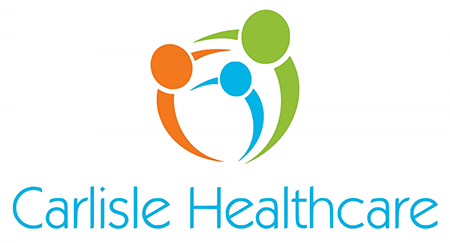Opening Times | NHS App | Contact Us
CQC Rating Good
Cholesterol, Q-Risk and statins
Understanding Q risk is important in preventing future cardiovascular problems. If your Q risk is 10% or higher it is now advised that you are offered the option of starting a statin medication to lower your cholesterol in addition to being encouraged to make lifestyle changes wherever possible. Please read below for more information.
Many people are aware that having high cholesterol is a risk factor for cardiovascular conditions such as heart disease and stroke. However it is not the only factor. Other risk factors include;
- Age
- Gender
- smoking
- High blood pressire
- Diabetes
- Family history of heart disease
- poor diet
- Alcohol
- Being overweight
- Lack of exercise
- Ethnic origin
It is possible to use a calculator called a ‘Q risk’ calculator to combine these different risk factors and give a % chance of developing cardiovascular disease within the next 10 years.
Q risks are expressed as
- Low risk: Q risk is less than 10%, meaning there is less than a one in 10 chance of developing cardiovascular disease such as a heart attack or a stroke within the next 10 years.
- Moderate risk: A Q risk of 10-20%, meaning there is a one to two in 10 chance of developing cardiovascular disease such as a heart attack or a stroke within the next 10 years.
- High risk: Q risk of 20% or higher, meaning there is at least a two in 10 chance of developing cardiovascular disease such as a heart attack or a stroke within the next 10 years.
If you have been sent this link by your Clinician it means they are concerned your Q risk is 10% or more.
How can you lower Q risk?
You can reduce your risk of developing cardiovascular disease by making adjustments to your lifestyle.
- Eating a healthy and balanced diet (low salt, low fat, low sugar, 5 fruit/veg a day)
- Maintain a healthy weight (BMI 19-25)
- Keep active – doing regular physical activity (at least 30 mins a day for 5 days /week)
- Stopping smoking if you smoke
- Moderating alcohol consumption (<14 units /week and alcohol -free days)
How can statins help?
Statins are a group of medications which can help to lower cholesterol. By lowering cholesterol and other harmful fats they can help to reduce the chance of you developing cardiovascular disease including reducing the risk of having a heart attack or stroke by up to 28%.
Statins need to be taken every day, usually for the rest of your life, to be effective. Most people tolerate statins well without any problems. A small number of people experience headaches, nausea, tiredness and very rarely experience muscle or liver problems. Not everyone can take a statin, people with liver disease, and people who are pregnant or are breast feeding should not take a statin. Statins can also interact with other medications and also grapefruit juice. More information can be found here
People who take a statin need a routine blood test 3 months and 12 months after starting treatment, to monitor liver function, and the impact of the statin on cholesterol. They will then continue to have annual reviews.
Even if you take a statin it is still important to make sure you are following a healthy lifestyle.
Next steps…
If after reading this you would like to start a statin please contact us via the following link
If a statin does not sound like something you wish to take, you do not need to contact us however we would urge you to make sure you are following a healthy lifestyle.
More information
There is lots of useful information about lifestyle modifications on the NHS website here: https://www.nhs.uk/live-well/ and also on the British heart foundation website here: https://www.bhf.org.uk/informationsupport/risk-factors
If you are browsing and interested in knowing your Qrisk please click here
We use cookies to help provide you with the best possible online experience.
By using this site, you agree that we may store and access cookies on your device. Cookie policy.
Cookie settings.
Functional Cookies
Functional Cookies are enabled by default at all times so that we can save your preferences for cookie settings and ensure site works and delivers best experience.
3rd Party Cookies
This website uses Google Analytics to collect anonymous information such as the number of visitors to the site, and the most popular pages.
Keeping this cookie enabled helps us to improve our website.
